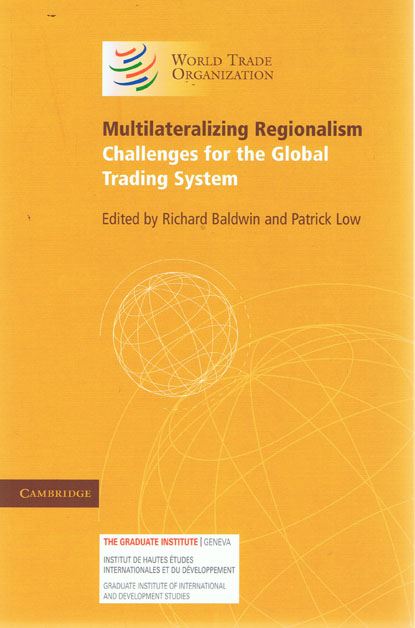
Regional trade agreements (RTAs) have proliferated around the world in the past two decades, and now nearly all members of the WTO are party to at least one. Besides tariffs and rules of origin regulating trade in goods, many RTAs now include provisions on services, investments, technical barriers to trade and competition rules, as well as a host of issues not directly related to trade.
The geographic reach of RTAs is expanding, with transcontinental agreements spreading forcefully alongside intra-regional agreements. Multilateralizing Regionalism was the title of a major conference held from 10–12 September 2007 at the WTO in Geneva. Brought together in this publication, the conference papers achieve two things. First, they marshall detailed, new empirical work on the nature of the ‘Spaghetti Bowl’ and the problems it poses for the multilateral trade system. Second, they contribute fresh and creative thinking on how to ‘tame the tangle’ of regional trade agreements.